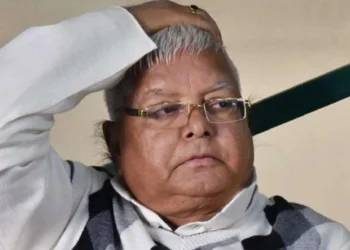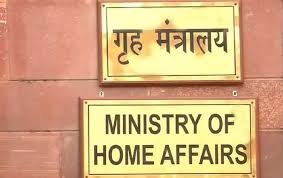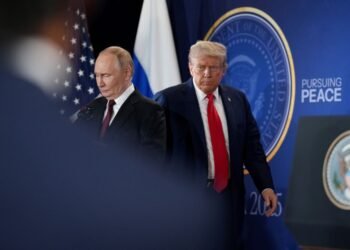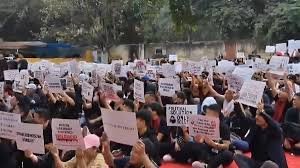Editor’s Note: In observance of the second anniversary of the tragic events that engulfed Manipur on May 3, 2023, The Power Corridors is inviting opinion makers and individuals from all sides of this ongoing crisis to share their suggestions for restoring peace and prosperity to the region. As part of this initiative, we feature a detailed article by Michael L. Haokip, General Secretary of the Thadou Inpi Manipur. While thanking Mr. Michael for his contribution, I take the opportunity to encourage other prominent voices within both the Meitei and tribal communities to come forward and express their perspectives. You may send your write-up at novinkn@gmail.com. We intend to compile these contributions and forward the collection to the Ministry of Home Affairs for their consideration of the voices from Ground Zero. Thank you. Navin Upadhyay.
Examining the Kuki-Zomi-Hmar Demand in Manipur: A Look Two Years Later
 By Michael L. Haokip
By Michael L. Haokip
As Manipur enters the third year of the devastating violence that began in May 2023, calls for justice continue to echo across the state’s fractured society. Among the loudest are those from the Kuki-Zomi-Hmar groups, who assert that justice must precede peace and that justice, in their definition, equals a political solution. But what exactly do they mean by this, and at what cost?
The Kuki-Zomi-Hmar definition of justice is not abstract. For them, it refers specifically to the proposed Memorandum of Settlement under the Suspension of Operation (SoO) Agreement, to be signed between the Government of India (the centre), the Government of Manipur (the state), and two insurgent groups: the United People’s Front (UPF) and the Kuki National Organisation (KNO). This political settlement, they argue, must result in the establishment of a Separate Administration, namely a Union Territory with Legislature under Article 239-A, modelled on the Puducherry framework.
What is particularly notable, however, is the exclusivist manner in which this demand is being pursued. The prevailing view within the Kuki-Zomi-Hmar bloc is that only the SoO signatory groups, UPF and KNO, are mandated to engage in political dialogue with the Centre. Civil society groups and non-signatory voices are being asked to stay silent and are sidelined from any form of negotiation. The ethnic conflict between the Kuki-Zomi-Hmar and Meitei communities is now increasingly framed by the former as the “SA/UT Movement.”
Yet, despite its political packaging, the proposed dialogue between the Centre and the SoO signatories is not directly about the ethnic conflict between the Kuki-Zomi-Hmar and Meitei communities. This disconnect raises several critical questions that have yet to be addressed, either by the Government of India or the Kuki-Zomi-Hmar leadership.
ALSO READ: The Horror of May 3, 2023, and Way Ahead: WL. Hangshing
First, why must a narrowly framed dialogue involving armed insurgent groups be treated as representative of the entire Kuki-Zomi-Hmar population? Are all Kuki-Zomi-Hmar people part of the insurgency? Is the SoO Agreement, which was never designed as a people’s movement, now being elevated into one? If so, does this transformation retroactively justify the attacks and counter attacks by Meiteis towards Kuki-Zomi-Hmar and vice-versa the rhetoric of secession? Is the assertion that the Meiteis are aggressors, therefore, merely a cover for a militarized breakaway plan?
Most concerning is the potential collapse of the very framework that the Kuki-Zomi-Hmar leadership is relying on. The SoO Agreement, under which UPF and KNO operate, is not currently valid, having lapsed with the withdrawal of the state. Even if the centre considers extending it, a standard clause requiring adherence to the territorial integrity of Manipur remains non-negotiable. This is in direct contradiction with the demand for a separate Union Territory to be carved out from the present Manipur territorial limit. The deadlock is, therefore, as much legal and constitutional as it is political.
ALSO READ: Unified Meitei Voice at Manipur Convention Calls for Rights and Territorial Integrity
Meanwhile, public faith in the representative nature of UPF and KNO is fraying. These groups have maintained their hold largely through coercive means, and their internal authority is increasingly being questioned. With no viable guarantees to protect the Kuki-Zomi-Hmar population in case of retaliation, and no clear support from the Meitei-majority state government, the community finds itself caught in a web of contradictions.
What becomes of the Kuki-Zomi-Hmar militants if the SoO framework collapses entirely? What political future awaits a movement that seeks justice through secession but has no unity, no public consensus, and no constitutional footing?
In the end, this may not be a movement for justice at all but a deadlock masquerading as one. If there is to be real justice, it must be inclusive, lawful, and sustainable, but not a unilateral political deal negotiated at gunpoint.














